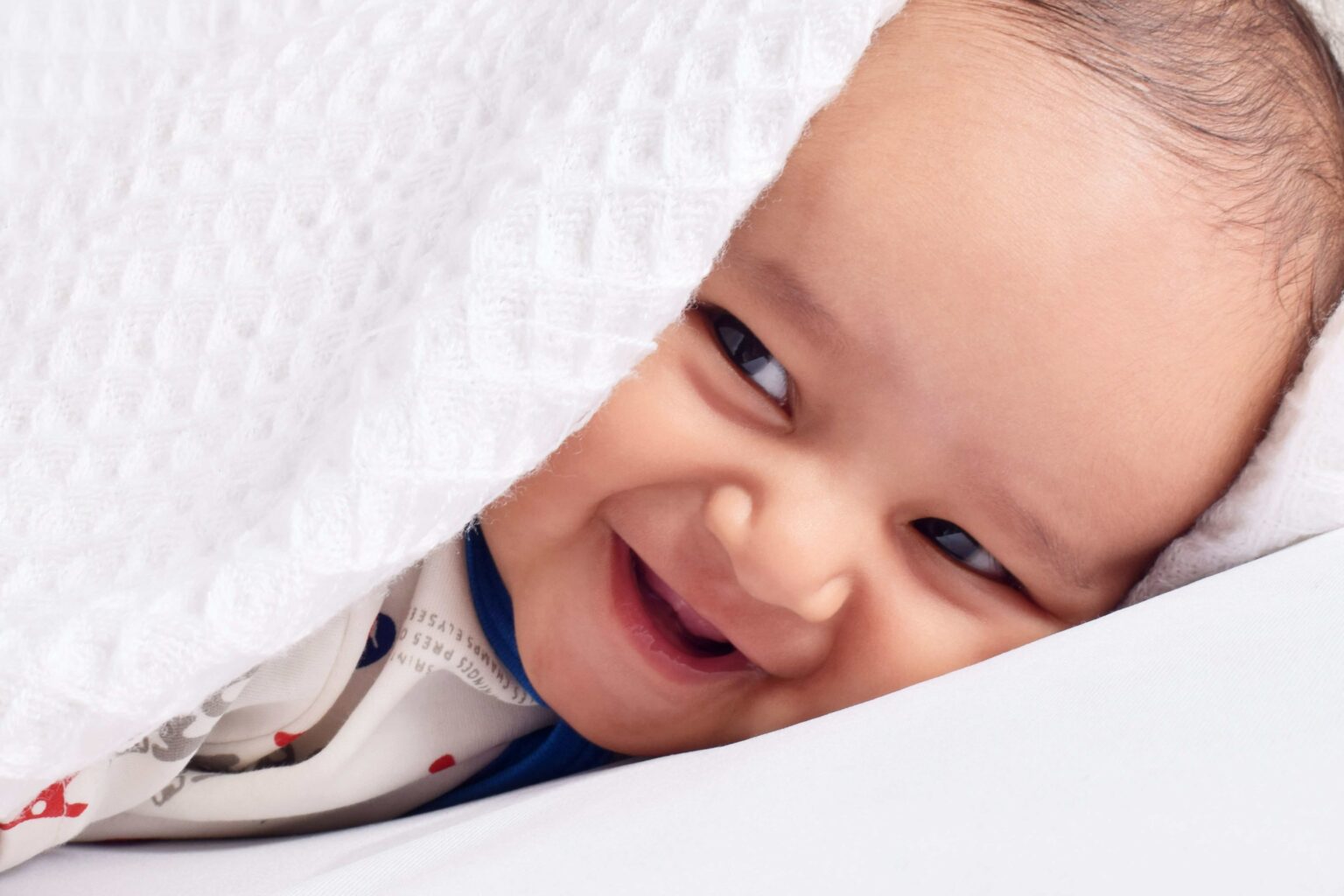Baby Development: Your 8 Month, 3 Week Old

From rolling over, to starting to play with toys, to laughing and babbling, your 8-month-3-week-old baby is likely knocking down milestones like dominoes. This can be exciting and fun to watch, but it comes with a caution: no baby achieves every milestone at the “recommended” times. Even typically developing babies tend to hit some earlier than others. So, it’s always a good idea to keep some perspective on your baby’s milestone progress.
Fine motor development
Fine motor skills is the term doctors use to describe mastery of small motions. This includes delicate motions with fingers, hands, and arms. While you may be watching out for the “big” gross motor development milestones like rolling over, crawling, and walking, fine motor skill milestones are fun too.
At 8 months, most typically developing babies are rapidly developing fine motor skills. This means being able to pick up small objects like raisins or puzzle pieces, or using fingers in a “pincer” motion to hold small objects. Your baby should also be able transfer toys from one hand to the other, such as taking a pacifier from her right to left hand.
Vision development
Your baby’s vision is likely developing alongside the fine motor skills. This makes good sense if you think about it: sharper eyesight makes it easy to see the small objects your baby wants to pick up!
Some gross motor skills will also enhance fine motor development and vision development. Crawling helps increase both coordination and eye-hand-foot coordination. According to the American Optometric Association, babies who were early walkers and did not crawl as long may not develop their eye-limb coordination as well as babies who crawled for longer time periods.
Dealing with aggression
As your baby gets more control over his or her limbs, you might see some aggressive behavior. This includes pinching, pulling, and scratching, and the behaviors sometimes seem as if they are on purpose. Especially at this age, before your baby knows how to talk, hitting, pinching, and scratching can sometimes seem like the only option to express feelings.
Aggression can also be a learned behavior. Perhaps your child has viewed older children playing more aggressively or television and video games that display violence. If you can identify the trigger and remove it, this can help. Remember also that you and your family are role models for your little one. Using time-outs instead of spanking or hitting can result in less-aggressive behaviors.
Stranger anxiety
At 8 months, your baby is now firmly aware that you and he or she are actually different people (and that those hands and feet waving in front of their faces really belong to them). This can create a number of new emotions, including stranger and separation anxieties. Your baby may naturally prefer familiar faces, such as yours and your family’s. To help your baby adapt to new faces and caregivers:
- Show a friendly attitude toward others. Your child will likely pick up on these cues and be less afraid.
- Have any new caregivers come early before you leave to avoid a long, fearful reaction from your little one. You can interact with the caregiver for a while, which can provide your baby some comfort.
- When you are ready to leave, don’t draw out your goodbye. This can make your baby’s separation harder.
With time, your baby will learn to accept new faces without a meltdown. Until then, your friends and family will understand, especially if you give them a heads up your baby is experiencing some stranger anxiety.
Breastfeeding should continue up to one year of age. Find out how breastfeeding changes as your baby grows with Bundoo Expert, Leigh Anne O’Connor.
Powered by Bundoo®










